
- Book clubs and weight loss both require strategy
- You’re 95% likely to reach a goal if you do this ONE thing
- Get out of your head—it makes everything better
I started a book club.
And here’s 4 reasons you should too.
Being in a book club requires strategy, accountability, connection and… occasional treats.
 Sharpening these transferable skills helps you accomplish any goal, including reaching and maintaining a healthy weight.
Sharpening these transferable skills helps you accomplish any goal, including reaching and maintaining a healthy weight.
Book clubs help you develop strategies
As soon as my club chooses a book, I divide the number of pages by days we have until our next meet-up.
Presto!
A great big ‘ol task is broken up into tiny, doable chunks.
Rather than being overwhelmed by a 300 page book, I can slowly and steadily work toward this goal by reading around 10 pages a day.
And once you get going those small steps build momentum. Like often the start of a book feels daunting because there’s tons of new names and I don’t feel invested in anybody. But as I get into the book, I want to keep reading well past the daily quota.
…Soon I start finding small windows of time to sneak in a few more pages.
Book club strategy applied to eating & exercise
Small changes make it easier to get started and help you get used to the change.
For instance, drinking 2% milk for a while helps you transition from skim milk to the healthier, more natural choice, whole milk (3.25%) that helps you lose weight.
My STRATEGY experience
I always wanted to make dramatic change. There’s something so seductive about it. But after 10 years of gaining weight instead of losing it, I finally resigned to making tiny changes. Like if I thought I ate too much, Dramatic-Change Kelly would say:

And bingeing can lead to purging… and on and on and on.
What a waste money, food and a day.
Or an afternoon.
Or an hour.
Having a strategy to short-circuit the all-or-nothing mindset
(typical of someone with OCD)
breaks the vicious cycle of starving, bingeing and purging
& helps you get on with what matters to you.
When I finally started taking a baby-step approach, I’d stop myself and accept an imperfect day.
It felt strange… even wrong, at first. Like I was lowering the expectations I had for myself. But stopping mid-unhealthy behavior got easier and easier.
Within a few weeks I wasn’t doing the unhealthy behavior at all!
The baby-step strategy was more effective in days, than the dramatic-change strategy had been over 10 years!!!
Another strategy book clubs offer
If you want to break a habit like overeating OR exercising to-make-up-for overeating (because you know both these extremes confuse your body and make it easy to gain weight) having a short activity to distract you helps you break the habit. Let’s say you just ate a bag of chips and think “I’ve wrecked my diet so I’m going to eat whatever I want. I’ll restart my diet tomorrow…” You can break this pattern of behavior by reading a few pages of your book. Being pulled into another world can interrupt that frantic feeling of doing-what-you-always-do. Even if you say, “Ok, you can eat more but first read 2 pages…” You’ll be surprised how effective a short disruption is to your ingrained behaviors. Keep your book handy in your backpack or purse! Read a few pages to press pause and the desire will pass.

Book clubs build in accountability
I’ve always treated reading as though it’s a luxury. Like something “extra” to do when everything else is done.
You have a 65% chance of completing a goal if you commit to someone. And if you have a specific accountability appointment with a person you've committed to, you will increase your chance of success by up to 95%— The American Society of Training and Development (ASTD)
Many people do this with exercise!
But reading is important. So I started a book club to build in accountability.
When I know I’m meeting up with people, I have a deadline! Checking in with others gives me incentive to have good information to report back on. So now I make time to read. And our book club meets on the last Friday of every month. This makes our meet-up predictable and creates a healthy routine.
Book club accountability applied to eating & exercise
Let’s say you’re cutting back on exercise. And decide you want to cut back X minutes per week, aiming to work down to a healthy routine of exercising 3 times a week for 25 minutes and being active each day.
Set yourself up for success!
Choose a day to check in with someone to report your progress. It should be a set date and time, like every Sunday night. And it can be done in person or over the phone.
Just ask someone you trust to be your check-in buddy.
Make sure you plan a way to celebrate together when you reach your goal!
Please note:
It’s ok to slip. But being honest is key. Reporting back about what’s actually going on allows you to make new baby-step goals and get back on track.
My ACCOUNTABILITY experience
When I knew something was wrong during my first year of university I went down to the student medical center. The doctor there set me up with a psychiatrist who specialized in eating disorders.
We met twice a week.
At each appointment I said things are going great!
Why?
Because I was ashamed of my eating disorder. I had so much misinformation and 6 years of ingrained habits. And when he suggested strategies, like to purge one less time per week, I thought he was crazy! I wanted to get better NOW. So I’d agree to everything he said and do none of it.
Soon we were meeting once a week and then every other week because I kept telling him things were going well.
Meanwhile…
I was getting more and more unhealthy. I was wasting everyone’s time. And I still didn’t understand that asking for help was a STRENGTH.
Had I simply said “I feel funny doing that” my doctor would’ve had the chance to explain the strategies he suggested. Then changing my behavior would have been SO. MUCH. EASIER.
Your doctor is your friend. Medical professionals are in the field of disordered eating because they want to help you climb back to being the person YOU want to be.
If I could go back in time I would ask more questions and always report back on exactly what I was experiencing.
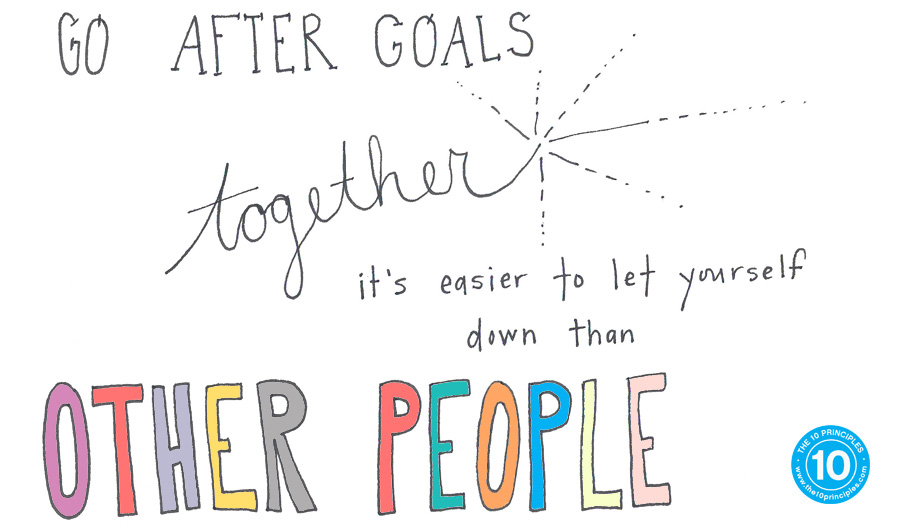
Book clubs create connection
A reader lives a thousand lives before he dies... The man who never reads lives only one.— George R.R. Martin, authorGetting out of your head and spending time with other people—their ideas, experiences and jokes, is healthy.
Every time you read you also fall into another world. And having another person choose what you read adds another layer. So often they’re stories you wouldn’t have read otherwise but NEED to know.
Last month we read Life After Life by Kate Atkinson.
And this month we’re reading Beautiful Scars by Tom Wilson.

I realized on the eve of Remembrance Day that both these books, chosen by other people, capture the horrors of war that had never occurred to me. This knowledge helps me appreciate my reality and feel more grateful.
…Yesterday they had queued for three hours for a loaf of bread. When they ate it, it seemed to contain no actual flour, although it was hard to say what it did contain – cement dust and plaster? That was what it tasted of anyway.
– Ursula, Life After Life by Kate Atkinson
Life After Life looks at civilian life and the bravery of so many who were full-time volunteers, cleverly told from both English and German perspectives via the same character (I love) Ursula. A little like the movie Sliding Doors starring Gwyneth Paltrow.
Life After Life even shares what goes on during wartime at the zoo.

And Beautiful Scars is a memoir about Canadian Musician Tom Wilson who’s father figure George Wilson was an RCAF flight sergeant and rode the “suicide seat” of a Lancaster bomber. (To this day you can hear a Lancaster fly over Toronto every Saturday.) George gained a steel plate in his head to cover a hole above his right temple and lost his sight and much more during the war.
On the morning of November 11th we went to Historical Fort York in downtown Toronto to honor those who sacrificed so much for people they’d never meet. And all these details I learned in these books swirled around in my head.
Book club connection applied to eating & exercise
So often when we have a problem we shrink into ourselves to try and fix things. But that only magnifies challenges.
We must connect with others, their expertise, kindness and companionship, to get healthy—whether it’s a doctor, friend or reading blog posts and other resources. Groups like She Recovers are also powerful ways to connect and get answers.
Also, watching movies, turning on the radio and doing hobbies brings new people, perspectives and ideas into our lives. They also keep us busy with our interests.
No matter what you’re going through there’s always people with less than you. When you focus on others, it’s easier to easier to pull ourselves out of our problems.
Who can you help?
It could be donating something you don’t need in your home or doubling a recipe to share with a neighbor.
There’s so many ways to connect with others.
My CONNECTION experience
I went from being involved in everything in high school, from Student Council Exec., sports, VP of OSAID (Ontario Students Against Impaired Driving), enrichment retreats and being Head Girl Prefect… to dropping out of everything in university. Even hardly attending class. I thought if I focused on getting healthy it would speed up the process.
Instead it isolated me with misinformation.
I kept everything secret because I was ashamed.
I didn’t get healthy until I started opening up.
Most people I talk to tell me they have a friend or relative who’s eating was also disordered. Sometimes they tell me they were once obsessive dieters too.
I’m usually shocked!
But nothing in this world is weird or strange. And it’s all fixable once you connect.
Over the last 20 years I’ve been healthy, I always make sure I’m signed up for a few extra-curricular activities. Right now I’m taking a jewelry course, signed up for Hot Docs (one documentary a month on a set date) and … (drum roll!)… Book Club.

…this piece of brass will (one day!) be a bracelet.
Without these predictable dates in my calendar I could easily fall into a work coma and never come out. Also, focusing on the realities of other people was a huge part of my eating disorder recovery.
Full-time teaching gave me a steady routine and I LOVED the kids.
Then when I started developing Who Is NOBODY? all my attention was focused on this project… which made it easy to NOT get hung up on eating one bite too many. I was too busy and had to keep moving forward.

Book clubs are a great time to eat an occasional treat
When you meet up with friends to discuss a book you read, having a treat is part of the fun.
And there’s lots of other social occasions you’ll find yourself having something sweet.
Like when we went to Fort York on Remembrance Day, Rocky enjoyed the Scottish Fancies and pound cake the soldiers also ate in the war.

Book club’s occasional treats applied to eating & exercise
Healthy snacks are ROUGHLY balanced and made MOSTLY of whole foods. But eating sweets occasionally, like chocolate or this coconut pie, helps to curb cravings.
Eating treats once in a while also prevents bingeing. And it’s healthy to eat them with friends rather than alone in your home. Especially while you’re just starting to build healthy habits.
Put the snacks you’re going to eat on a plate before you begin and enjoy.
My OCCASIONAL TREAT experience
For years I never ate anything sweet unless I was bingeing. I was all-or-nothing and didn’t realize the importance of moderation. And I had no idea you could eat treats (or even naturally higher-fat foods, like guacamole) and lose weight. At first I’d only have half a piece of cake or half of what everyone else was having for dessert. But slowly I started to eat more “normal” portions at parties and get-togethers.
How to start a book club
You can ask people to join who you don’t know well enough to ask for dinner. That’s what’s so cool about book clubs. You can round up a bunch of people you’ve been hoping to get to know better. Like if there’s someone at a store who you always love to talk to, or another mom you see at school but have never hung out with… there’s something about a book club that makes it socially acceptable to ask near-strangers. And once you meet it’s pretty natural because you all have the book in common.
In short: Ask a few interesting people you want to know better.
You could also invite 3 people and ask each of them to bring their bestie (!) I think including *new* people is half the fun and a few wild cards keeps the book choices interesting.
Set a date in stone: Choose a predictable date, like the last Friday of every month.
Make some ground rules: Like whoever chooses the book also hosts, provides snacks and does communication (emailing to confirm the book, date, their address, etc). And you can always get fancy. For instance, if your book takes place in another country, find a recipe for the food they eat. Reading Life of Pi by Yann Martel? Serve samosas.
Book Choice:
If in doubt, chose a book that’s been on The New York Times Best Sellers List for more than a week. Many books are on (and immediately off) the list simply because they had a massive pre-order or clever marketing. Choose a book that’s stood the test of time.
Questions: To get the ball rolling, you can find provoking questions for most books with a simple Google search or ask everyone to think up few.
Make Today Count
 What are you interested in that you can make part of your regular routine?
What are you interested in that you can make part of your regular routine?
Is it sports? Something artistic? A debate team or Toastmasters (where you learn to speak in front of a group)? What about volunteering somewhere like the Salvation Army Thrift Store, local humane society or signing up to be a reading buddy with kids at your local library, boys and girls club or school?
It doesn’t have to be the PERFECT place… just choose somewhere to start and see where it leads.
Build healthy eating and exercise habits. A healthy weight will follow.
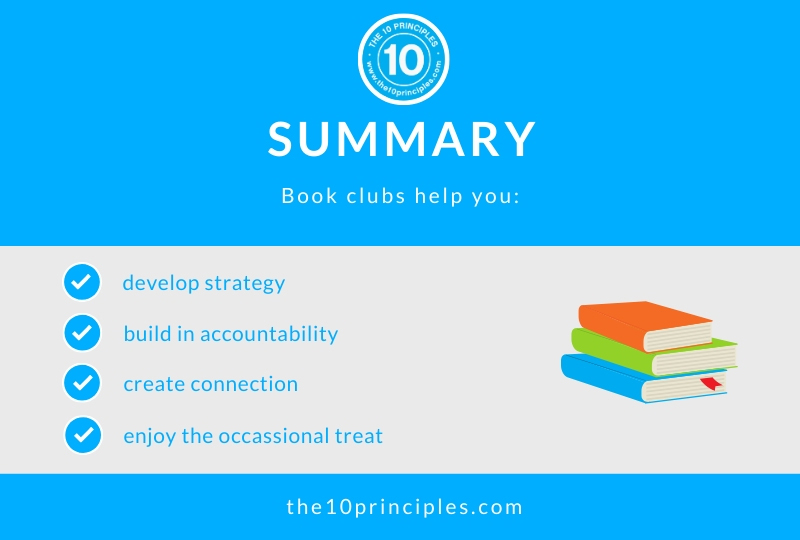
Next Steps
Whether it’s a soccer team, stained glass course, book club or anything else… Getting involved in an extra-curricular activity that you do at a predictable time each week or month helps you get into healthy routines and build goal-setting skills… that contribute to reaching and maintaining a healthy weight.
We never knew what friends we had until we came to Leningrad— Billy Joel, Singer-songwriter
Speak to friends, ask around, read information boards in your city or town, call the local recreational center or your YMCA… see what courses and clubs are available near you. You’ll be surprised what’s happening right in your backyard!
We’re so lucky to live in a time where we can connect with others and do things we love in peace.
Lest we forget.
Are you in a book club?
Have you read Life After Life or Beautiful Scars?
What’s your favorite book?

 These kinds of meals and snacks unlocked my HAPPY weight 21+ years ago (I lost 30 pounds without dieting!)
These kinds of meals and snacks unlocked my HAPPY weight 21+ years ago (I lost 30 pounds without dieting!)
You'll also be subscribed to my newsletter. Don’t like it? Unsubscribe in one click

 These kinds of meals and snacks unlocked my HAPPY weight 21+ years ago (I lost 30 pounds without dieting!)
These kinds of meals and snacks unlocked my HAPPY weight 21+ years ago (I lost 30 pounds without dieting!)
You'll also be subscribed to my newsletter. Don’t like it? Unsubscribe in one click




Sharing what I learned makes the 10 years I STRUGGLED worth it

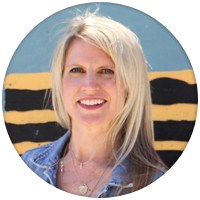

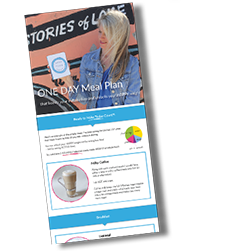

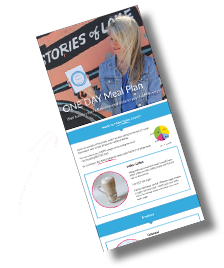
Leave A Comment